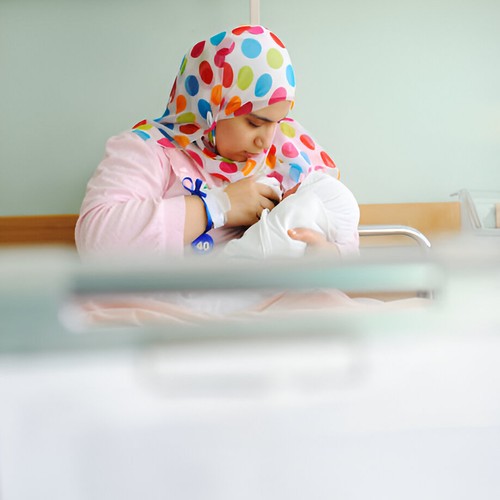Breastfeeding While Fasting (Ramadhan): Is It Safe for Mothers and Babies?
Fasting during Ramadan is a deeply spiritual practice observed by millions of Muslims around the world. For breastfeeding mothers, it often raises questions about whether fasting is safe for both the mother and the baby. The decision to fast while breastfeeding is personal, but understanding the potential effects and precautions can help ensure the health and well-being of both. During fasting, a mother abstains from food and drink from dawn to sunset. This dietary change can lead to concerns about hydration, energy levels, and milk supply. While the body is designed to adapt to fasting, breastfeeding mothers may face unique challenges as their nutritional needs increase to support milk production.
Studies show that short-term fasting typically has minimal effects on the composition of breast milk. The body prioritizes maintaining the nutritional quality of milk, ensuring that the baby continues to receive essential nutrients. However, prolonged fasting or inadequate calorie and fluid intake may reduce the overall milk volume, which could affect feeding patterns. Hydration is one of the biggest concerns for breastfeeding mothers during fasting. Breast milk is primarily made up of water, and dehydration can impact milk production and the mother’s energy levels. It is important for fasting mothers to hydrate adequately during the non-fasting hours to replenish lost fluids and maintain their supply.
Mothers who are exclusively breastfeeding newborns or infants under six months may face greater challenges while fasting. These babies rely entirely on breast milk for their nutrition, making it essential for mothers to consume enough calories and fluids to sustain milk production. In such cases, consultation with a healthcare provider or religious authority can provide guidance on whether fasting is advisable. For older babies or toddlers who have started solid foods, fasting may be more manageable for mothers. These children receive additional nutrients from complementary foods, which can help ease the demand for breast milk during fasting hours. However, breastfeeding remains an important source of comfort and nutrition, so mothers should monitor their milk supply and the baby’s feeding cues closely.
Fatigue is another common concern for fasting mothers. The combined demands of fasting, breastfeeding, and daily responsibilities can lead to physical exhaustion. Prioritizing rest and balancing activities can help conserve energy and reduce stress, making the fasting experience more manageable. Some mothers may notice a temporary dip in milk supply during fasting, particularly if they are not eating or drinking enough during the non-fasting hours. This reduction is usually temporary and can be addressed by increasing hydration and calorie intake during suhoor and iftar. Breastfeeding more frequently or pumping during the night can also help maintain milk supply.
It is important for breastfeeding mothers to listen to their bodies while fasting. Symptoms such as dizziness, extreme thirst, or significant fatigue may indicate that the body is struggling to cope. Breaking the fast in such situations is not only permissible in Islam but also recommended to prioritize the health of both mother and baby. Support from family and the community plays a crucial role in helping breastfeeding mothers navigate fasting. Providing assistance with household tasks, meal preparation, or caring for older children can give mothers the time and space to focus on their own well-being and their baby’s needs during Ramadan.
Healthcare professionals and religious leaders often encourage flexibility for breastfeeding mothers during Ramadan. Islam allows exemptions from fasting for those who are pregnant, breastfeeding, or unwell. Mothers who are unable to fast can make up the missed days later or provide fidya (a form of charity) as compensation, depending on their circumstances. Ultimately, the decision to fast while breastfeeding is highly individual and depends on factors such as the baby’s age, the mother’s health, and her ability to maintain adequate nutrition and hydration. Open communication with a healthcare provider and a trusted religious advisor can help mothers make an informed choice that aligns with their personal and spiritual needs.
For mothers who choose to fast, preparation is key to a successful Ramadan. Planning balanced meals, staying hydrated, and monitoring the baby’s feeding and growth can help ensure a positive experience. Fasting does not have to compromise the breastfeeding journey, but it requires careful attention to both physical and emotional well-being. Breastfeeding while fasting can be a rewarding experience that strengthens both faith and resilience. By understanding the body’s needs and responding to its signals, mothers can navigate this sacred month with confidence, nurturing their baby while honoring their spiritual commitments.






